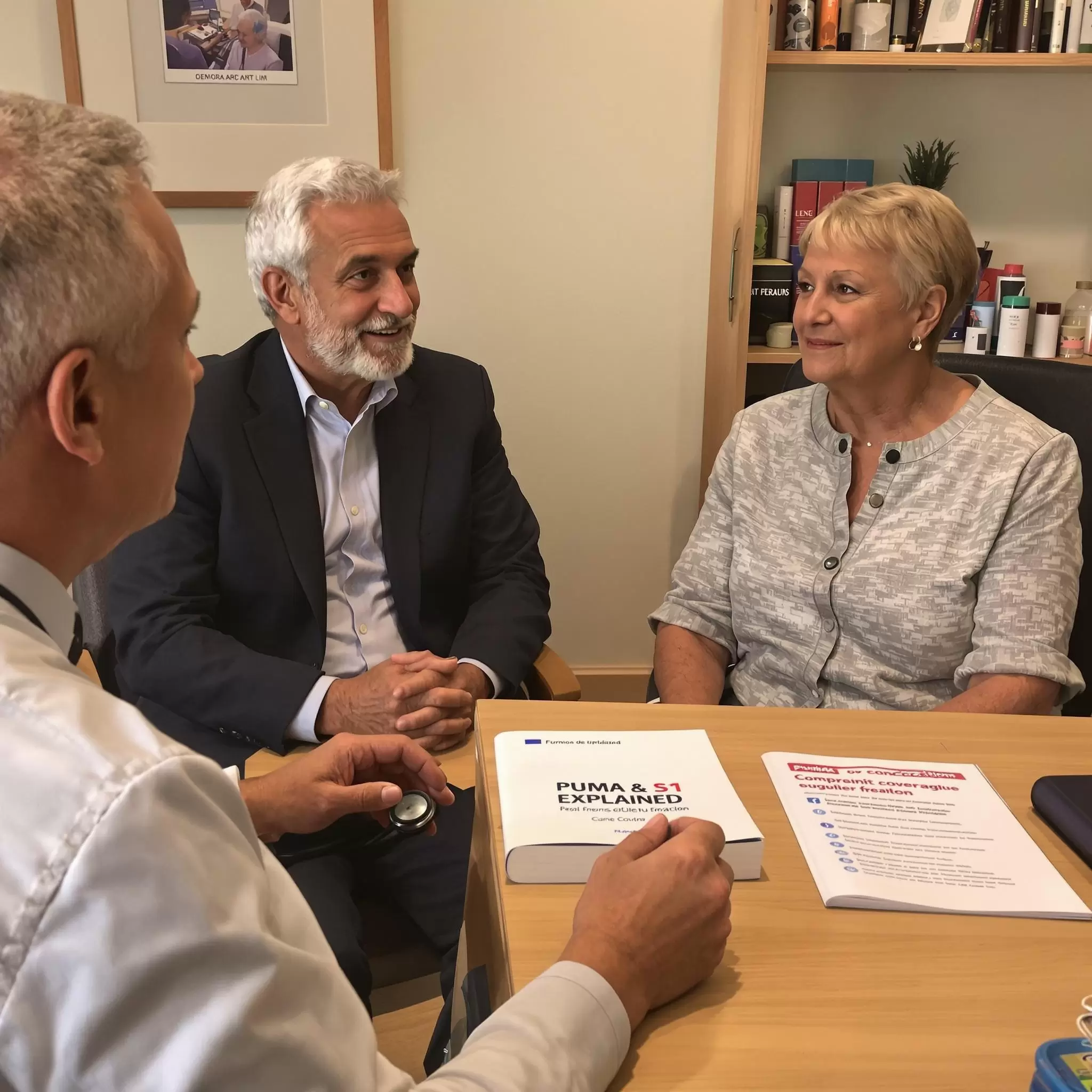
to "Will my UK pension be enough?" "How does the French healthcare system work?" "How do I apply for a retirement visa?" "Can UK nationals still live in France after Brexit?"
These are the questions I hear daily from English-speakers planning to retirement to france. Having guided hundreds of retirees through this life-changing journey, I've seen both the joy of successful transitions and the stress of preventable mistakes.
France continues to enchant would-be retirees with its promise of sun-drenched vineyards, morning market trips, and a slower pace of life. But beneath the romantic vision lies a maze of practical considerations that can make or break your French retirement dream.
Understanding how tax residency in France impacts your worldwide assets is crucial. Expats are subject to taxation on their global income and assets, which can lead to complexities such as double tax obligations and inheritance tax implications based on one's total wealth, including properties and investments held outside of France.
Want to hear what other clients
are saying about us?
1. Retire in France the right way!
Since Brexit, UK citizens have joined Americans and other non-European Union nationals in needing a long term stay visa France (visa de long séjour) to live in France for more than 90 days. This first step is crucial and mistakes can be costly.
Understanding the visa application process is essential for expats looking to retire in France as it involves meeting specific financial and health insurance requirements and demonstrating sufficient financial resources to the French authorities.
The most common visa for retirees is the VLS-TS visitor visa, also known as a france retirement visa, which allows you to stay for up to a year and can be renewed. Many UK retirees and British retirees don't realize they now need to apply for retirement visas just like non-EU citizens. The French consulate in your home country is where you'll submit your application for these retirement visas.
When applying for a long stay visa or any retirement visa in France, you must provide a valid passport with at least six months remaining before expiration. The catch? You must also prove you have sufficient financial resources to support yourself without working in France. Demonstrating sufficient income, typically ranging from €1,200 to €2,000 per month, is essential to meet the visa requirements.
Last month, I helped Janet and Michael, a couple from Bristol planning their move to France from the UK gather their visa application documents for the French consulate. Despite having comfortable pensions, they were initially rejected because they hadn't formatted their bank statements correctly to demonstrate stable monthly income. After properly organizing their financial documents to show their pension income and rental income from a UK property, their second application for retirement visas sailed through.
The French authorities typically look for income around the French minimum wage (currently €1,800 per month for a single person) plus appropriate private health insurance coverage. For couples, showing joint resources of approximately €2,700-€3,000 monthly puts you in a strong position to meet the visa requirements.

2. The French Healthcare System Equation
France's healthcare system consistently ranks among the world's best, combining quality care with reasonable costs. However, many new retirees, especially UK nationals looking to live in France, misunderstand how it works in practice.
Unlike the NHS, the French healthcare system (l'Assurance Maladie) operates on a reimbursement model. You pay upfront for medical services and are then reimbursed by the state healthcare system, typically around 70% of a set rate. This is where a supplementary health insurance plan (mutuelle) becomes essential, especially for expats and long-term residents in France who need additional health coverage beyond the universal health insurance scheme. Many British nationals and UK retirees who live in France find that private health insurance is absolutely necessary to cover the remaining 30% of costs, including medications and dental care.
One British client, Robert, moved to Brittany last year and experienced this firsthand. During our pre-move planning, he was skeptical about needing private health insurance, thinking his UK state pension and S1 form would cover everything. Six months after his move, he called to thank me for insisting he purchase a mutuelle plan. When he needed unexpected dental work, the basic state coverage would have left him with a €600 bill, but his supplementary plan reduced his out-of-pocket expense to just €45.
For UK citizens retiring to France, the S1 form remains valuable post-Brexit. This document allows you to access French healthcare while the UK pays for your basic coverage. It's available to those receiving a UK state pension and provides exemption from certain French social charges on pension income.
3. The Long Stay Visa Application Process
Many UK nationals are surprised by the complexity of applying for a long stay visa now that Britain has left the European Union. The process begins at the French consulate in your home country, where applications for retirement visas must be submitted in person.
To secure your French retirement visa, you'll need:
- A valid passport with at least 6 months validity remaining
- Proof of accommodation in France (property deed, rental agreement, or host letter)
- Evidence of financial resources (pension statements, investment income)
- Comprehensive private health insurance (meeting Schengen requirements)
- A letter explaining your intent to live in France without working
Most UK retirees find that preparing these documents takes 4-6 weeks, and the French consulate typically processes applications within 2-3 weeks. I recommend starting the process at least 3 months before your planned move date.
4. Income Tax: Keeping More of Your Money
A common misconception I encounter is that French taxes will swallow retirement income whole. While France does have a reputation for high taxation, the reality for retirees can be surprisingly favorable thanks to tax treaties and understanding the income tax implications.
The UK-France Double Taxation Agreement means you won't pay tax twice on the same income. Depending on your situation, some pension income may only be taxable in your home country while still reportable in France. As a tax resident in France you are required to pay tax on your worldwide income which means annual tax declarations to the French government.
Take Margaret who moved to Dordogne in early 2024. She was pleased to find out that her UK personal tax allowance still applied to her state pension, with France only taxing amounts above this threshold. With France's income splitting system for couples (quotient familial), her tax bill was lower than expected.
Understanding the tax implications of moving to France is key. Wealth tax (IFI) on worldwide real estate assets above €1.3 million can catch some retirees off guard. Also essential is to consider the implications of inheritance tax France, as French inheritance laws and tax rates can significantly impact your estate planning.
I always recommend a full tax review to understand all tax obligations before finalising your move to avoid surprises.
5. Finding Your French Home
When planning your retirement in France, it's essential to understand the complexities of buying French property, including legal requirements, tax implications, and the purchasing process.
Southern France attracts many UK retirees with its Mediterranean climate but it's worth looking beyond the obvious destinations. France is a great retirement destination due to its climate, lifestyle and healthcare. The European Economic Area remains appealing, with France standing out as a premier retirement destination for many British citizens.
Last year I worked with a Canadian couple who had their hearts set on Provence but found property prices were out of their budget. After exploring alternatives they discovered the Occitanie region offered similar sunshine with more affordable housing and an expat community already in place.
When choosing your location consider:
- Proximity to healthcare facilities
- Year-round community (some villages empty out in winter)
- Transportation links (especially if you plan to return home frequently)
- Proximity to airports for visiting family
- Winter climate (many stone houses can be hard to heat)
6. Residence Permit and Permanent Status
Once in France with your long stay visa, the next step is obtaining a residence permit (carte de séjour) or French residence permit as it's often called. For UK nationals and British nationals who want to live in France long-term, securing a residency permit is an essential step after arrival. This residency permit typically needs to be renewed annually for the first three years.
After five years of legal residency you can apply for a permit to become a permanent resident in France, which reduces administrative burdens., which reduces administrative burdens. Many UK retirees who live in France find getting this permanent residency permit is a milestone in their expat journey. This also gives you access to the French healthcare system and other social benefits.
One of my American clients, David, who moved from Boston to Lyon, described the day he got his carte de séjour permanent as "the day I truly became part of France". The security of permanent status allows you to fully enjoy retirement without worrying about visa renewals. After ten years of residency, you might even consider becoming a French citizen if you wish to fully integrate.
The application process for a residency permit requires preparation. You'll need to submit your application at the local prefecture with documents including:
- Your long stay visa and passport
- Proof of address (utility bills, rental agreement)
- Photos
- Proof of financial resources
- Proof of health insurance
UK nationals who want to live in France should be prepared for some administrative hurdles to get their residency permit but most find it's worth it for the lifestyle.
7. Managing Your Money Across Borders
Most retirees need bank accounts on both sides of the Channel (or Atlantic). You'll need a French bank account for daily expenses, utility bills and taxes, while keeping your home country account for pension deposits and managing assets back home.
Currency fluctuations can have a big impact on your buying power especially when living on a fixed income. I recommend clients establish a relationship with a currency specialist rather than using standard bank transfers which can save thousands annually on pension transfers. Also, don't forget to budget for social security contributions when considering the overall tax burden in France as these contributions give access to various benefits like healthcare.
When Paul and Anne moved their retirement funds from the UK to France they initially used their UK bank for transfers. After comparing rates with a currency specialist they realised they could save nearly €2,300 annually on their pension transfers – enough for a nice holiday back home each year.
8. Healthcare for Residents: What UK Retirees Need to Know
For UK nationals living in France, understanding your healthcare entitlements is key. While the S1 form covers basic healthcare for UK retirees receiving a state pension, many are surprised to find they still need private health insurance to cover the remaining costs. After Brexit, the Global Health Insurance Card (GHIC) replaced the European Health Insurance Card (EHIC) for British citizens, but this only covers temporary stays, not permanent residents.
Your residency permit application will require proof of comprehensive health insurance. Without adequate private health insurance UK nationals hoping to live in France may find their residency permit applications rejected.
9. Beyond the Paperwork: Building Your French Life
The administrative aspects of retiring to France may seem overwhelming but they're just the foundation for what really matters – living your best life in your new home.
Language skills are the single biggest factor in successful integration. Even basic French opens doors to deeper connections with neighbours and local services. Many municipalities offer free or low-cost French classes specifically designed for retirees. And understanding and securing healthcare coverage is crucial for long-term residents as it gives access to France's comprehensive healthcare system and meets legal requirements.
Peter who moved from Manchester to a small village near Bordeaux credits his twice-weekly language classes at the local mairie (town hall) with transforming his retirement experience. "I went from being 'the Englishman' to being a true neighbour," he told me recently. "Now I'm invited to community events, get tips on the best local producers at the market and have French friends who've never been to the UK."

10. Living Your Best Life in France
The beauty of France as a retirement destination is the diversity of lifestyles it offers. Whether you dream of city living, coastal relaxation or rural tranquility there's a corner of France that can fit your vision. Many UK nationals who live in France report higher satisfaction with their quality of life than before retirement.
For UK retirees and other foreign nationals living in France joining local clubs and associations can fast-track integration into the community. From wine appreciation societies to hiking groups, volunteering opportunities to book clubs, there are countless ways to build a social network while pursuing your passions.
The residency permit process may seem daunting at first but most retirees find once established with their long stay visa and initial residency permit the administrative burden diminishes and they can focus on enjoying all France has to offer.
11. Conclusion
France is a unique combination of culture, cuisine and quality of life that continues to draw people looking for more from their golden years. The attractive aspects of France retirement are the lifestyle, the culture and the quality of life. With proper planning, realistic expectations, and understanding your obligations as a tax resident, France can deliver on its promise of la belle vie.
The key is to approach the move with both heart and head – to love the romance of French living while addressing the practicalities with care. As one happy client said: "France doesn't make retirement easier but it certainly makes it more enjoyable."
If you're considering this journey start your research early, build a relationship with specialists who understand both systems and remember a successful retirement in France is measured not just in euros saved but in moments lived.








